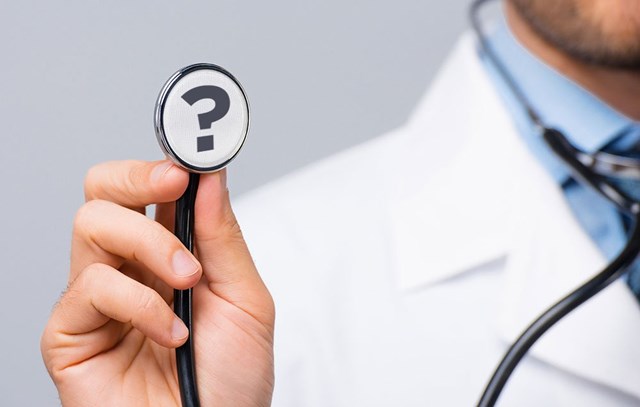
Getting in and out of the doctor’s office is hectic, which is probably why you might forget to ask half the questions you wanted to.
But the same is probably true of your doc – there’s a lot that’s left unsaid on both sides during rushed appointments.
But that doesn’t have to be the case. Run through this checklist the next time you see your doctor to stay on top of your health.
HOW’S MY WEIGHT?
Don’t assume that you’re in the clear just because your doctor doesn’t say anything about your weight.
It’s surprising, but they likely won’t bring up this touchy subject themselves.
A 2010 report from STOP Obesity Alliance notes that the topic of BMI was ignored at nearly half of visits, and 70 per cent of obese patients weren’t diagnosed as obese.
If you know you’ve gained or lost more weight than is comfortable – maybe you’re under stress or just experienced a big life event causing the scale to tip up or down – don’t be afraid to open up the discussion.
DID YOU WASH YOUR HANDS?
Shockingly, this is something you really should ask (nicely, of course).
According to a few sources, doctors follow proper hygiene practices just 30 to 40 per cent of the time.
And in a newly presented study for the Association for Professionals in Infection Control and Epidemiology, researchers found that healthcare providers who knew they were being watched were more likely to grab the soap.
It may be an uncomfortable topic to broach, but it could save you from getting sick. You can always soften the request by saying something like, “I know it seems crazy to ask you, but I’m just so paranoid.”
SHOULD I USE THIS APP?
As soon as you feel under the weather, you probably hit up Google or a symptom checker app to try to figure out what could be going on.
However, it pays to be cautious with these tools, as some have been shown to be highly inaccurate.
A 2015 study published in BMJ analysed the accuracy of diagnosis and advice from symptom checkers, and discovered that they provided the correct diagnosis just 58 per cent of the time, compared to doctors getting it right in as many as 90 per cent of cases.
But luckily, the advice to go get care immediately – presumably in the most serious cases – was right 80 per cent of the time.
WHAT KIND OF SUNSCREEN DO YOU RECOMMEND?
Slathering on SPF every day is one powerful measure to protect you from skin cancer. Doing so can decrease your risk of melanoma, the most deadly form, by up to 73 per cent.
But doctors almost never bring it up. In a study published in JAMA Dermatology, researchers looked at 18.3 billion patient visits over a 20-year period.
Doctors mentioned sunscreen less than 1 per cent of the time, even if that patient had a prior skin cancer. And dermatologists only mentioned SPF at 1.6 percent of visits.
Talking to your doctor is the first step in practising good sun-protective behaviours.
IS IT NORMAL TO FEEL THIS WAY?
Whether financial worries, a health scare in the family or problems with your in-laws are making you feel down, don’t discredit those feelings if they’ve escalated into a constant sense of misery or anxiety.
In fact, a new study in JAMA Internal Medicine found that less than one-third of people with depression were being treated.
While there’s a push for more doctors to screen for depression, symptoms aren’t always obvious during an appointment, especially when you’re there for a completely different reason.
COULD THIS BE A HEART ATTACK?
If you’re saddled with discomfort or pressure in your chest, dizziness/nausea and shortness of breath – a few signs of a heart attack – it’s critical that you act as your own advocate to your doctor.
In a 2016 UK study, 30 per cent of heart-attack sufferers received the wrong diagnosis – which increases your risk of dying.
Describing your symptoms clearly, specifically and calmly, while using phrases like “I’ve never felt this before”, will help the doctor diagnose you correctly.
You may even need to ask if you are having a heart attack or request an ECG and blood test.













